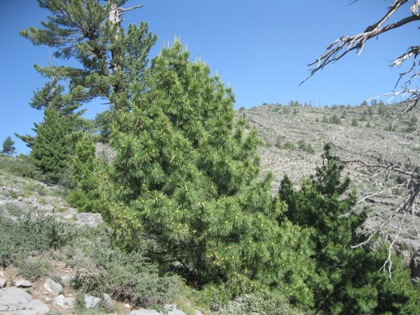Shimla: Threatened by changing weather patterns and construction of hydropower project, foresters and scientists deliberated at a day’s workshop here today over ways to conserve the rare chilgoza pines of Kinnaur district.
Rinki Sarkar, a social economist who had done a study on village specific livelihood and regeneration studies of Chilgoza Pine highlighted the ecological and economic importance of rare forestry product.

At the workshop Sarkar gave a detailed presentation about conservation solutions for the rare pine forests in Kinnaur.
Speaking on the occasion Ashwani Gulati, principal chief conservator wildlife, emphasized on new planting techniques of chilgoza saplings so that natural regeneration could be supplemented by artificial regeneration.
Presiding over the workshop Viney Tandon, principal chief conservator forests said every effort would be made towards conservation and regeneration of Chilgoza species.
Others who participated in the workshop included Narinder Chauhan, principal secretary irrigation, VC Pharka, principal secretary youth services and senior scientists Himalayan Forestry Research Institute, Shimla, Horticulture and Forestry University Nauni, Solan.
As Editor, Ravinder Makhaik leads a team of media professionals at Hill Post.
Spanning a career of over two decades in mass communication, as a Documentary Filmmaker, TV journalist, Print Media journalist and with Online & Social Media, he brings with him a vast experience. He lives in Shimla.





Good you brought it to the fore.
By the way I read some where – ‘The Himachal Pradesh State Forest Department has tried artificial regeneration of Chilgoza Pine at many places. However, performance of seedlings was found to be very poor.’ Do we know if they have improved on it or just paying lip service.